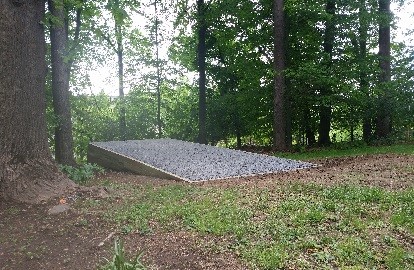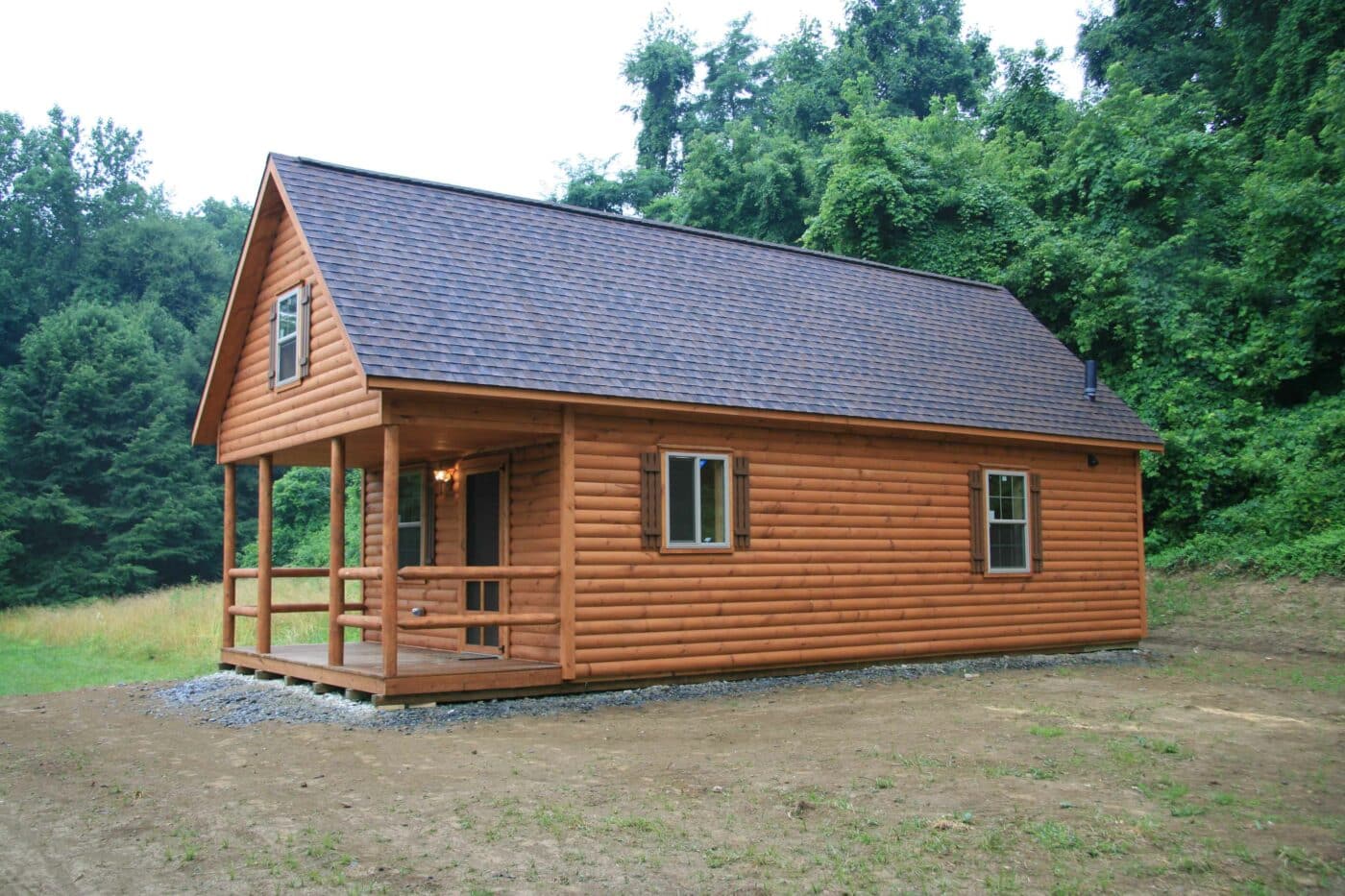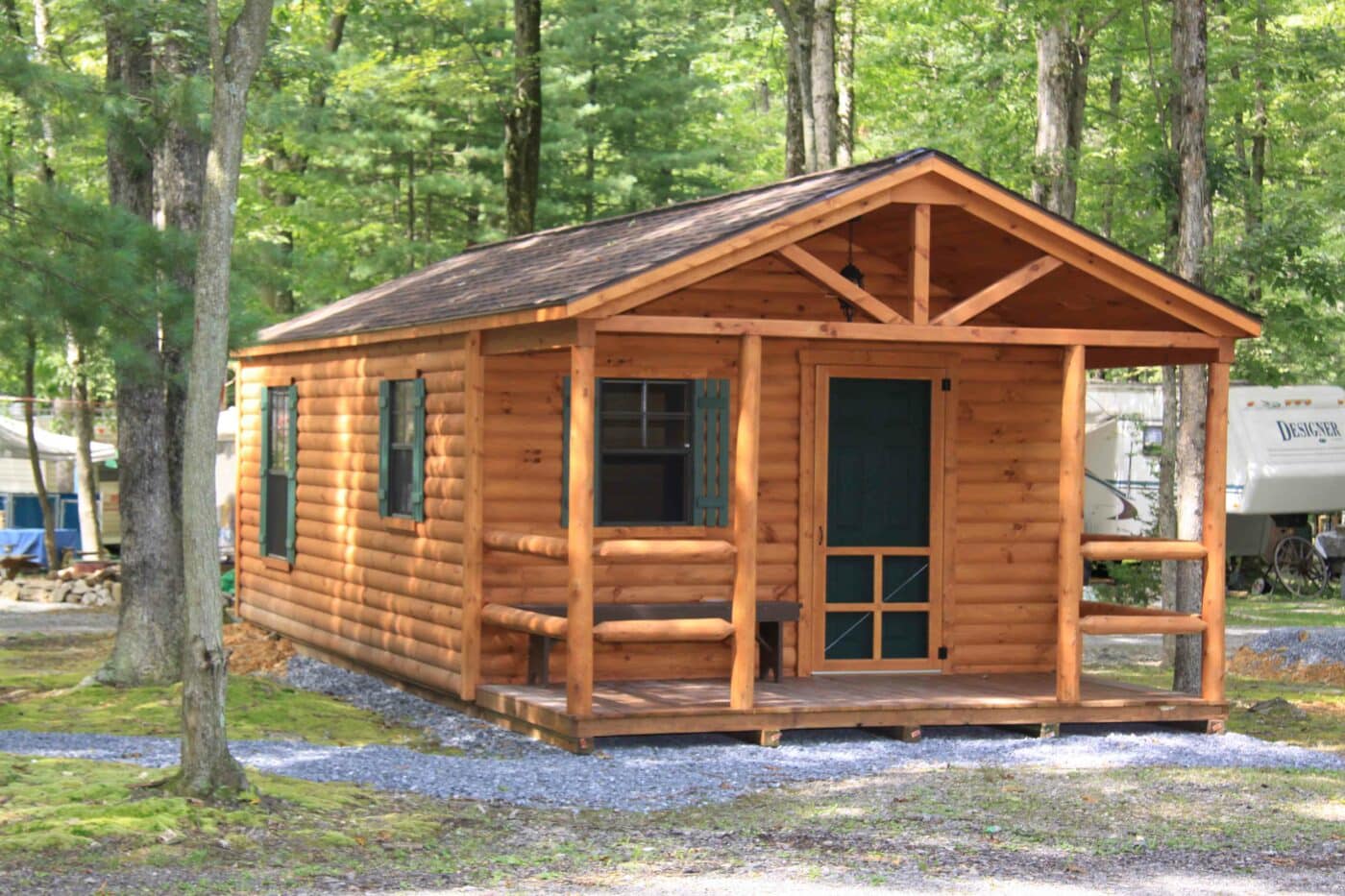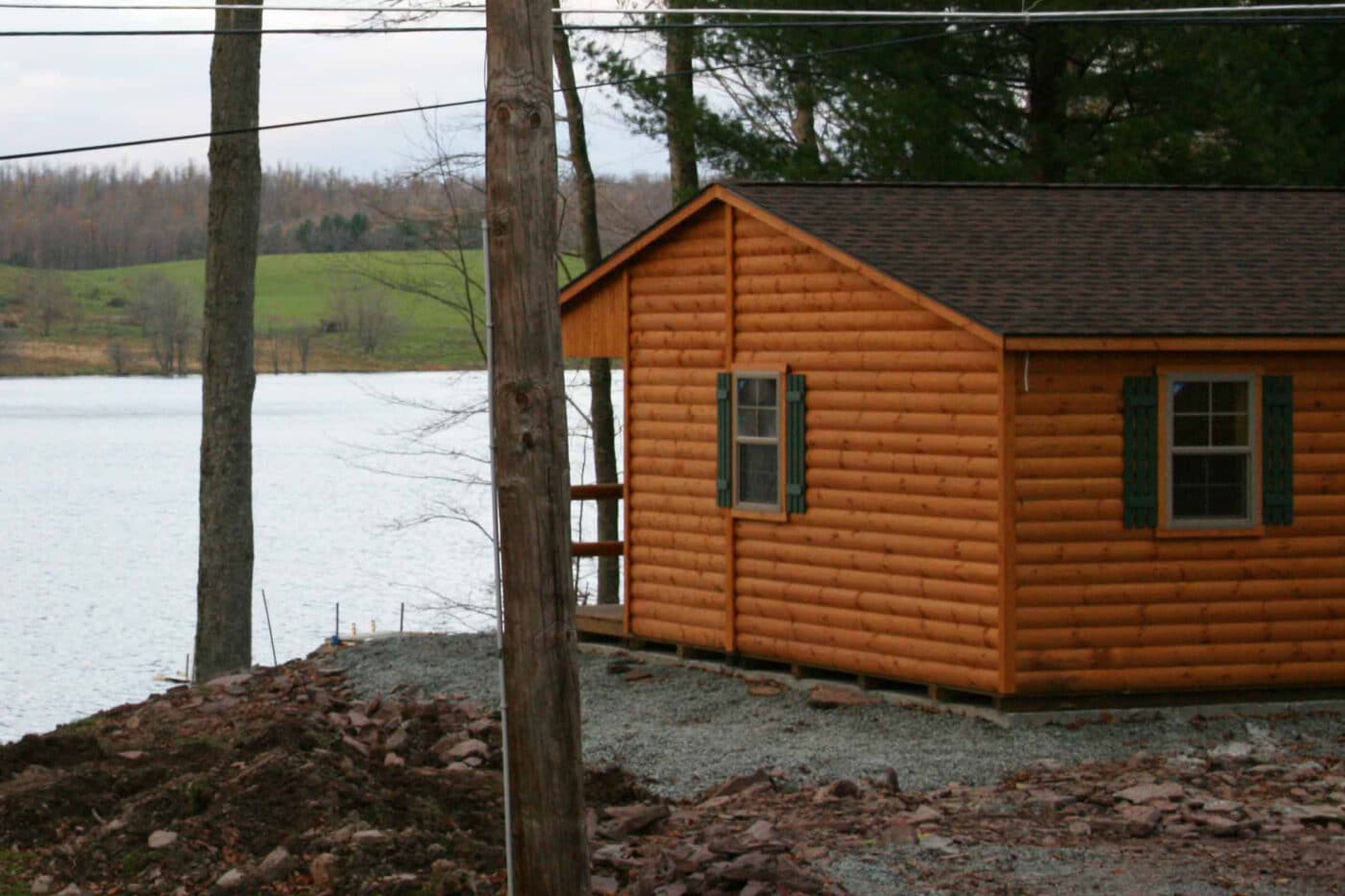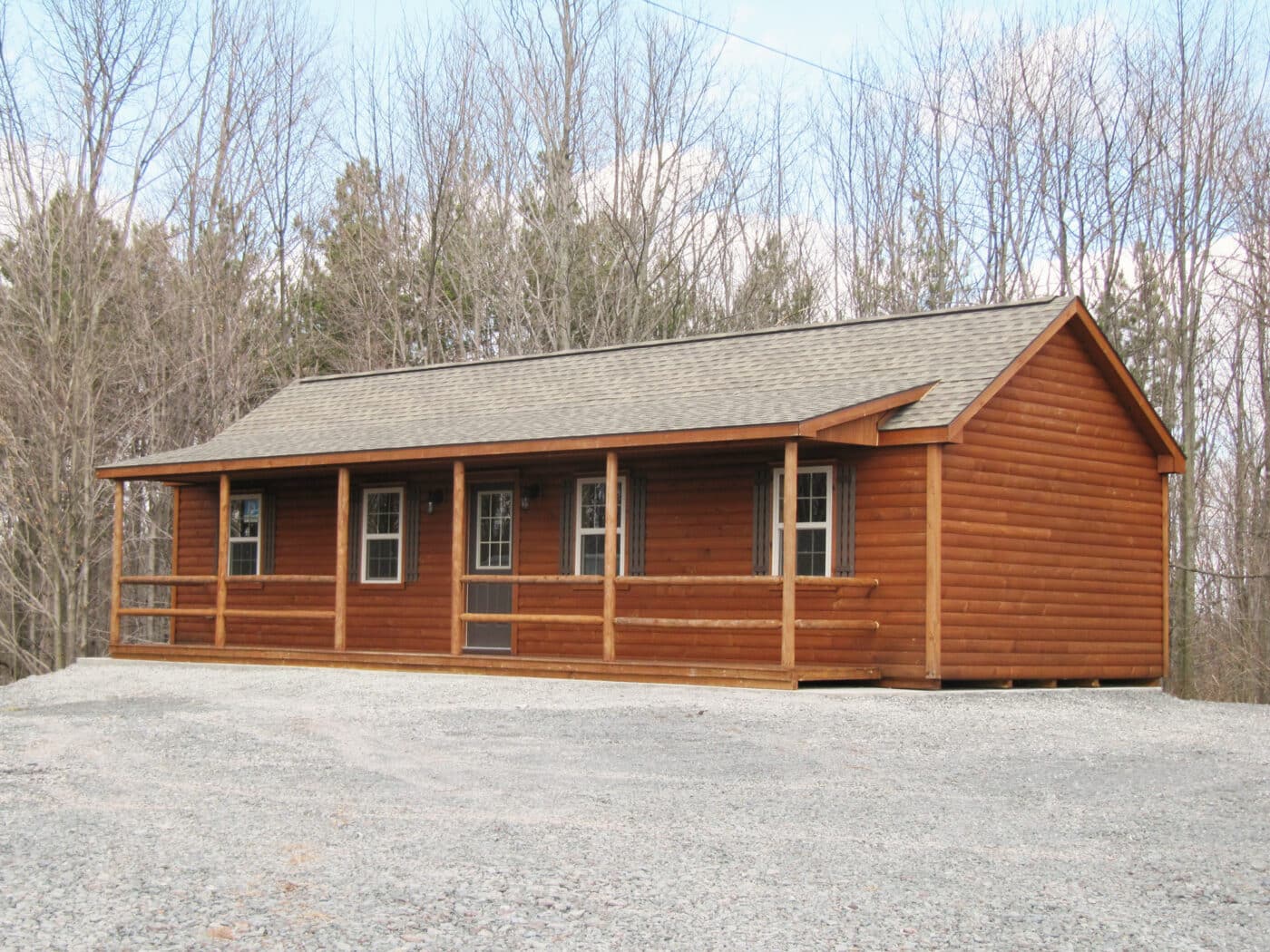DWELL BEYOND THE ORDINARY
Site preparation for Cabins
When it comes to building a cabin, one of the critical decisions you’ll need to make is choosing the right foundation. The foundation serves as the base for your cabin, providing stability and ensuring its longevity. Cabin foundations come in various types, and the choice largely depends on factors such as the cabin’s size, location, local climate, and personal preferences.
Here’s an overview of two common cabin foundation options:
Stone Pad / Gravel Foundation
A stone pad / gravel foundation foundation is a traditional and time-tested method of providing support for various structures, including cabin foundations, sheds, and small buildings. It consists of a layer of closely packed stones or gravel that serves as a stable base upon which the structure is built.
| Pros of Gravel Foundation | Cons of Gravel Foundation |
| Cost-Effective: Gravel foundations are typically more budget-friendly compared to concrete foundations, making them an economical choice for smaller structures or projects with limited funds. | Lack of Insulation: Gravel does not offer insulation benefits, which can lead to temperature control challenges in structures that require climate control. |
| Natural Drainage: Gravel provides natural drainage, allowing water to pass through and reducing the risk of moisture-related issues, such as flooding or mold. | Settling: Over time, gravel foundations may settle unevenly, potentially causing stability issues. |
| Versatility: Gravel foundations are well-suited for various structures, including sheds, cabins, and smaller outbuildings. | Limited Use: Gravel foundations may not be suitable for larger or more substantial structures that require a solid, load-bearing foundation. |
| Low Maintenance: They require minimal maintenance and can withstand various weather conditions without deteriorating. | Site Preparation: Proper site preparation is crucial to ensure the foundation is level and stable, which can be labor-intensive. |
Concrete foundation
Concrete foundations are a top choice for cabin construction. They offer strength, durability, and versatility, providing the structural integrity needed to support the cabin’s weight. Whether you prefer a full basement or a slab foundation, concrete foundations cater to the cabin’s specific needs. Additionally, they excel at climate control, ensuring comfort and energy efficiency in your cabin in the great outdoors.
Please Note: All Double-wide buildings are required to sit on concrete foundations.
| Pros of Concrete Foundation | Cons of Concrete Foundation |
| Strength and Durability: Concrete foundations are exceptionally strong and durable, providing stable support for structures, including homes and commercial buildings. | Cost: Concrete foundations tend to be more expensive than gravel foundations, which can significantly impact the overall project budget. |
| Climate Control: They offer excellent insulation, making them suitable for structures that require climate control, such as homes or offices. | Environmental Impact: The production of concrete involves significant energy consumption and carbon emissions, which can have environmental consequences. |
| Longevity: Properly constructed concrete foundations can last for decades with minimal maintenance, providing a reliable long-term solution. | Site Work: Concrete foundations often require excavation and more extensive site preparation, adding to the time and labor involved in the project. |
| Versatility: Concrete foundations can be adapted for various structural needs, including full basements or slab foundations. | Settling Issues: In some cases, concrete foundations can experience settlement or cracking, which may necessitate repairs. |
Cabin Foundation Cost
Gravel
- On the lower end, you might expect to pay around $3 to $5 per square foot for a gravel foundation. This cost assumes straightforward site preparation and basic materials.
- On the higher end, costs can range from $8 to $12 per square foot for more complex projects, larger structures, or situations where extensive site work is required.
Concrete
- Concrete foundations are generally more expensive than gravel foundations due to the materials and labor involved.
- Costs for a concrete foundation can start at approximately $6 to $10 per square foot for a basic slab foundation. This cost may increase based on factors such as excavation, formwork, reinforcing steel, and finishing.
Cabin Shed Permit Process and Client Responsibilities
Site preparation typically falls at the beginning of the build timeline for a construction project, including modular homes and cabins. It is the crucial first step that sets the stage for the entire construction process. Site preparation involves getting the construction site ready for the various stages of building.
Here are the key steps and prerequisites in the site preparation process:
- Research and Planning: Research local building codes, zoning regulations, and environmental requirements for your cabin site.
- Site Clearing: Remove any trees, shrubs, or debris from the construction area.
- Grading and Excavation: Excavate the foundation area to the required depth and dimensions according to your cabin’s plans.
- Soil Testing: Conduct soil tests to determine the soil’s composition, bearing capacity, and drainage characteristics.
- Foundation Selection: Based on soil test results and local regulations, select the appropriate foundation type (e.g., slab, crawl space, or piers).
- Utilities and Infrastructure: Install necessary utilities such as water, electricity, sewage, and gas lines if not already in place.
- Drainage Considerations: Implement proper drainage solutions, including installing French drains or swales to direct water away from the cabin’s foundation.
- Septic or Sewage System (if required): If your cabin is not connected to a public sewage system, install a septic system or other approved sewage disposal method in compliance with local regulations.
- Permits and Inspections: Obtain the necessary building permits and schedule inspections as required by local authorities. This step is crucial to ensure compliance with regulations.
- Foundation Construction: Pour and cure the foundation, ensuring it meets the specifications outlined in your plans.
- Final Inspections: Schedule final inspections to ensure that your cabin site complies with all local regulations and building codes.
site preparation contractors for cabin sheds
Choosing the right site prep contractor for your modular home or cabin shed is crucial to ensure a smooth and successful installation process. There are several key points to consider when selecting a contractor for this important task.
| # Assess their experience with similar projects to ensure they understand modular construction requirements. |
| # Scrutinize their portfolio to evaluate the quality and efficiency of their past work. |
| # Verify that the contractor holds the necessary licenses and insurance for legality and protection. |
| # Look for transparency in their pricing structure and their ability to provide detailed quotes to avoid hidden costs. |
| # Confirm their familiarity with local building codes and regulations to ensure compliance. |
| # Evaluate their communication skills and willingness to collaborate, as a strong working relationship can significantly impact project success. |

